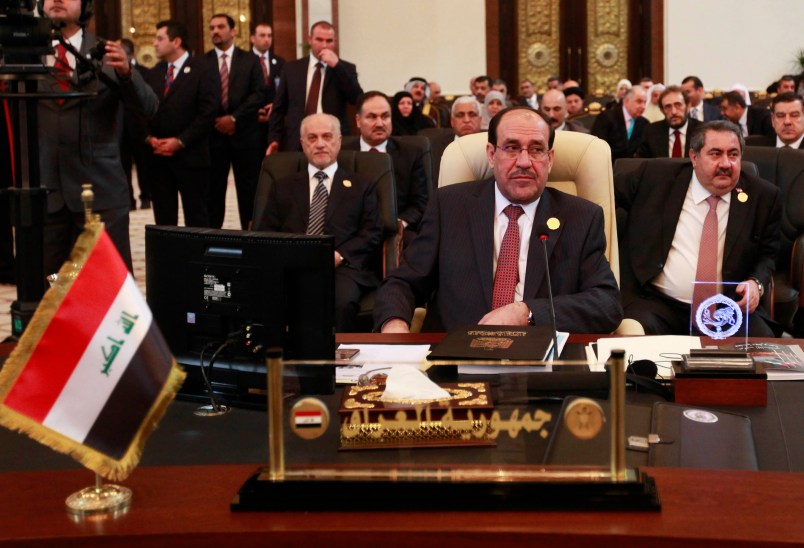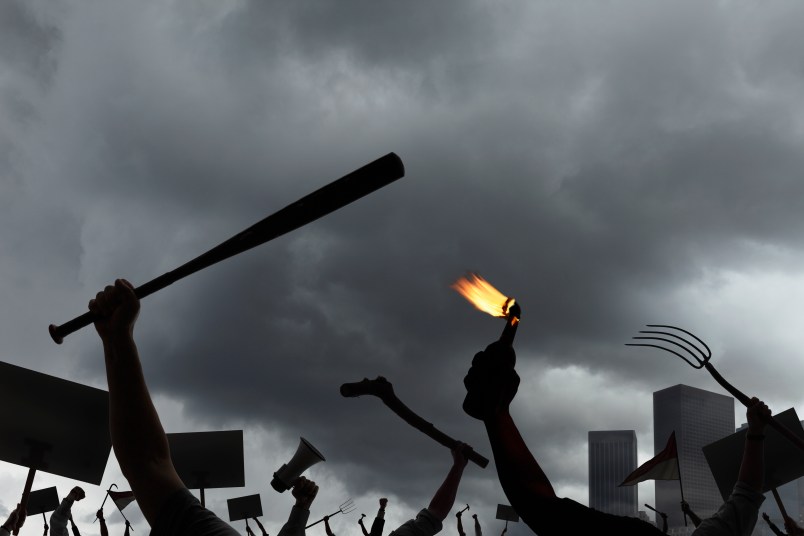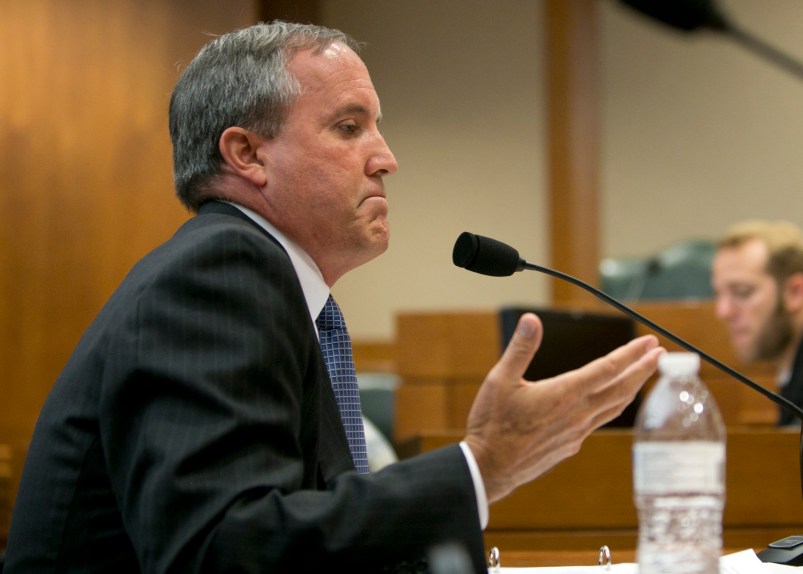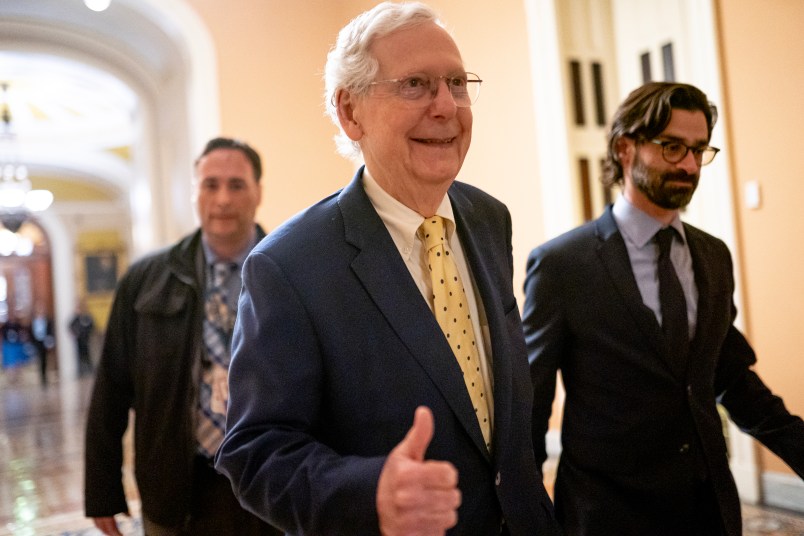During my time in Iraq and Syria, first as a soldier and then as a refugee advocate, I have had the pleasure of knowing many Sunni-Shia couples — some of whom charmingly dub their children “sushi.” During the initial reconstruction of Baghdad, I knew them as friends and colleagues. Later, as opportunistic fanatics of all stripes began turning Iraqis against one another through acts of ever-escalating violence, I knew them as courageous but increasingly threatened moderates. In the final years of the Iraq War, and through the civil war in Syria, I have mostly known them as refugees, survivors of violence and torture, widows, and orphans.
 The horror of the current Sunni-Shia split is neither the essential nature of the Middle East nor its inevitable destiny. Conflict between Sunni and Shia, we are too often told, is an ancient and intractable reality. Yet, it has been over 1300 years since Hussein and Ali died at the hands of the Umayyid caliph in Karbala — and for the vast majority of that time, Sunni and Shia lived together peacefully in the great cities of the cosmopolitan Levant. Together, they built businesses, raised families, and crafted scientific and cultural achievements that stand as enduring gifts to mankind. Far from the normal state of affairs, today’s ongoing sectarian bloodletting is instead the awful fruit of deliberate and brutal opportunism by extremists of all stripes.
The horror of the current Sunni-Shia split is neither the essential nature of the Middle East nor its inevitable destiny. Conflict between Sunni and Shia, we are too often told, is an ancient and intractable reality. Yet, it has been over 1300 years since Hussein and Ali died at the hands of the Umayyid caliph in Karbala — and for the vast majority of that time, Sunni and Shia lived together peacefully in the great cities of the cosmopolitan Levant. Together, they built businesses, raised families, and crafted scientific and cultural achievements that stand as enduring gifts to mankind. Far from the normal state of affairs, today’s ongoing sectarian bloodletting is instead the awful fruit of deliberate and brutal opportunism by extremists of all stripes.
ISIL, the extremist band-cum-army that has seized control of much of Iraq and Syria, has taken a number of forms since its inception, most often distributed within populations and difficult to target. For a fleeting moment after the fall of Mosul, however, ISIL was a conventional motorized infantry force on an open field run, convoying on highways and flying flags. If American air power had been within reach, and if a political decision to use it quickly had been made, it might have been a game-changer. The most straightforward way to separate an extremist group from a civilian population, after all, is to stop them from reaching population centers in the first place.
Now, however, that open field run is over. ISIL is once again distributed within an urban population, albeit much further south than before and partially encircling Baghdad. Due in large part to Iraq’s political and sectarian landscape, ISIL cannot easily take more ground than it has already. At the same time, what remains of the Iraqi Army is likely incapable of rolling ISIL back without very significant outside intervention.
The most likely near-term reality in Iraq is a bloody stalemate, with front lines loosely tracing the overlap between majority Sunni and Shia areas. On one side of the lines, the Iraqi government and army hold sway — with power openly resting in Shia hands alone and backed by ever-increasing Iranian support. On the other, ISIL’s Takfiri extremists work to cement control while maintaining alliances with Iraq’s Sunni tribal leaders, through a mixture of co-optation and coercion. This emerging reality is a nightmare for a Levant already struggling to reclaim its multi-sectarian, cosmopolitan self in the face of extremist sectarian division.
Improving the situation requires two major shifts to occur, and U.S. policy must be focused on improving the odds of both. The first shift, a break between Sunni tribal leaders and ISIL, is probably inevitable. Many Sunni tribal leaders who are now at least tacitly supporting ISIL were instrumental in defeating al Qaeda in Iraq — the now-defunct organization that spawned parts of ISIL in the first place. Simply put, the vast majority of Iraqis are not interested in living every aspect of their daily lives according to a medieval perversion of Islam. However, a parting of ways will result in little more than further violence unless tribal leaders have somewhere else to turn.
The second shift, reconciliation between Sunni leaders and Baghdad, then becomes essential. Unfortunately, it won’t be easy. Convincing Sunni leaders to put in their lot with Baghdad again will take much more than bags of cash or cases of ammunition. After the U.S. invasion of Iraq, Al Qaeda and other Takfiri groups sparked a sectarian civil war between the majority Shia and minority Sunni, and then positioned themselves as the Sunnis’ only defenders. Despite an existential fear of the Shia, Sunni tribal leaders eventually broke with al Qaeda and sided with the U.S. based on promises of minority representation in the new government, inclusion in the security services, and other protections.
But as the U.S. withdrew, Maliki reneged on those promises and instead began a policy of often brutal minority repression. The United States did very little to stand in the way. Then, when a Shia-backed dictator in Syria began slaughtering Sunnis wholesale just across the border, America again stood by. Iraq’s Sunni leaders today could be forgiven for feeling deeply betrayed, isolated, and existentially threatened.
This is in large part why American air strikes against ISIL, which might have improved the situation weeks ago, now risk making it much worse. Strikes against targets in Sunni population centers, developed by American advisors in Baghdad who are working alongside the Shia-dominated Iraqi army, will only serve to further isolate Sunni tribal leaders and convince them that ISIL and its backers truly are their only remaining friends. If ISIL represents a legitimate and current threat to the United States, then strikes may be worth that risk. If not, however, it is difficult to see how they will improve the situation — and easy to see how they could make it much worse.
Instead, we should apply our remaining leverage with Baghdad to foster the political conditions necessary for reconciliation. International Crisis Group and others have presented a number of useful and concrete outcomes we should pursue. They include: providing resources and authority to local leaders by implementing the 2008 Provincial Power Act, transitioning Maliki’s personal control over the military to a credible defense minister, the closure of secret prisons and investigations into human rights abuses by the Maliki government, credible economic development plans for majority-Sunni areas, and restoring Sunni and Kurdish officers to key command positions in the Iraqi military.
The 2008 Iraq Study Group Report’s observed that political stability within Iraq was in large part dependent on Iraq’s neighbors. Now, with the Syrian civil war and Iraq’s fate inextricably intertwined, that reality is more acute than ever. The United States is the only country capable of engaging all of Iraq’s neighbors, including Iran, in supporting Iraq’s stability and survival. This is a difficult but essential effort, and one we must lead — especially if nuclear negotiations with Iran prove successful.
Despite the chaos we see today, the future of the Middle East is not set. We are faced with a region that many believe to be shifting at a tectonic level as the tenuous and unwise political order decreed by European powers after the First World War crumbles away. What will replace it is anyone’s guess, and our influence over the outcome is in many ways limited. But even so, the United States remains the strongest single actor in the region, and our willingness to lead matters more now than ever. It is past time to shed the destructive and hopeless narrative of inevitable sectarian strife. Instead, we must put our faith and our efforts behind a return to hundreds of years of peaceful pluralism in the Levant.
Mike Breen is a former U.S. Army Captain who served in Iraq and Afghanistan. He is also the Executive Director of the Truman National Security Project and the Center for National Policy.









